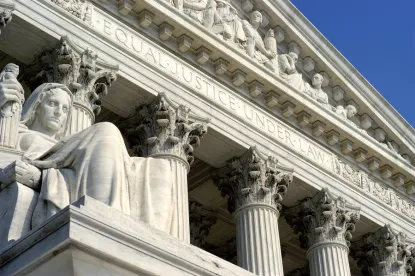On October 8, 2019, the Supreme Court of the United States heard oral argument on one core question: does the prohibition on discrimination “because of . . . sex” in Title VII of the Civil Rights Act of 1964 include discrimination on the basis of sexual orientation and gender identity? The Supreme Court granted review on this question, in part, because some circuit courts of appeal across the country had answered the question affirmatively (including the Second Circuit Court of Appeals in Zarda v. Altitude Express and the Seventh Circuit Court of Appeals in Hively v. Ivy Tech Community College of Indiana) while others (including the Eleventh Circuit Court of Appeals in Evans v. Georgia Regional Hospital) had answered it negatively, leading to a split of circuit authority.
As expected, based on the significant briefing in the cases, the Court focused on the text of Title VII itself and the judiciary’s interpretation of Title VII, moving past the principal evils to reasonably related evils that were never facially included in Title VII, such as gender stereotyping and same-sex harassment. Several justices pushed back on the employers’ efforts to distinguish between sex and sexual orientation. In questioning the attorneys for the employers, Justice Elena Kagan stated that the test to determine whether there is discrimination under Title VII is whether the same thing would have happened if the employee were a different sex, and that test comes out against the employers. As Justice Kagan framed it, although Gerald Bostock and Donald Zarda (who is now deceased), the former employees in two of the cases before the Court, were fired for being gay—that is, for being men who were attracted to other men—they would not have been fired if they were women who were attracted to men.
Justice Neil Gorsuch, who is regarded as a strict reader of statutory text, posed questions highlighting the unenviable judicial role of interpreting “old” statutes while he simultaneously acknowledged the textual evidence as to the statutory interpretation in the cases was “close . . . very close.” Justice Gorsuch also posed questions regarding the potential “massive social upheaval” that could possibly arise from the Court’s decision ruling for the plaintiffs in the three pending cases and about which Congress had no consideration at the time of Title VII’s enactment in 1964. Noting that transgender lawyers were in the courtroom during the oral argument, David Cole of the American Civil Liberties Union (who argued on behalf of Aimee Stephens, a transgender funeral home employee) responded that dress codes and bathroom usage have not fallen in the 20 years that courts have recognized that discrimination against transgender individuals is not sex discrimination.
Many employers—including the myriad that submitted briefs to support the reading of Title VII as prohibiting sex discrimination, including discrimination based on sexual orientation and gender identity—are closely following the outcome of the case. A decision is expected from the Supreme Court in 2020, likely near the end of the term in June. Prior to or following the Court’s decision, movement may occur on the currently stalled Equality Act, which the U.S. House of Representatives passed in May 2019.




 />i
/>i

